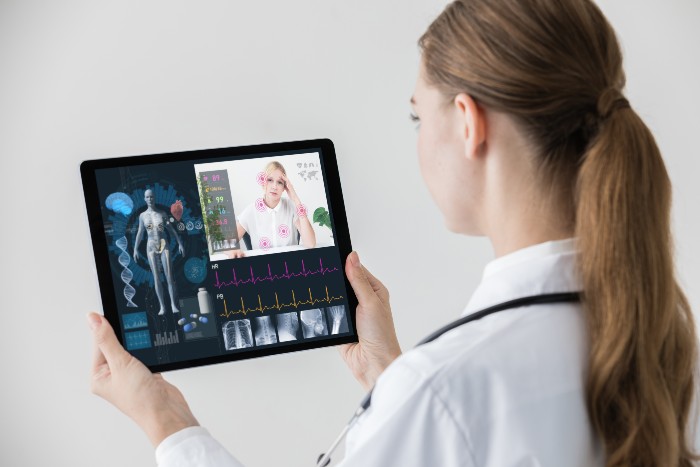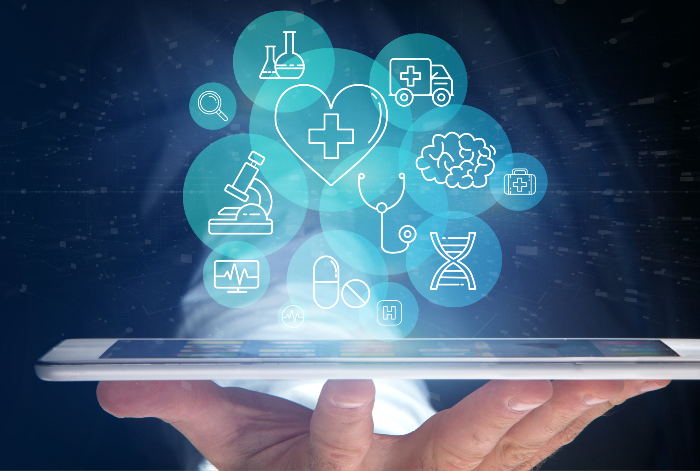
The fourth industrial revolution and the relatively fast development of Internet of Things (IoT) technology is unlocking new possibilities in healthcare. The NWU Faculty of Engineering in close collaboration with the NWU Business School and the Faculty of Health Sciences would continue to focus on the development and commercialisation of remotely monitored medical devices for the allied health professions, nursing and pharmacy in low and mid-income countries.
Digital Health is the new frontier in healthcare, enabled by 4IR technologies. Globally, significant amounts are invested into telemedicine, medical robotics, digital wellness and patient management platforms. However, its impact on especially developing countries with poor and under-developed healthcare systems is still under-estimated. By deploying appropriate Mobile phone Applications and Internet of Things (IoT) technology, we will be bridging remoteness, scarcity of skills, avoidance of personal contact and optimization of patient data use, all in pursuit of universal access to quality healthcare.
We are combining the efforts of African engineers, health scientists and life scientists to sculpt practical, high-impact and low-cost solutions. In all of our research efforts, we are enabling data-driven decision support for screening, diagnostics, rehabilitation, and therapy with multidisciplinary input.
In terms of screening and diagnostics, technology will be utilized to limit the effects of human error, by more accurate measurement, data analysis, and automatic reporting. The digitalization of this data will furthermore result in metadata, which will facilitate informed decision making by the government. Rehabilitation and therapy will be augmented by quantifying patient compliance and behaviour to exercise protocols, robotic-assisted therapy and computerised feedback on incremental progress.
Our research will bring technology closer to the patient since observation of the therapy and rehabilitation process will be enabled in a state of the art facility, where engineers will closely monitor the environment for opportunities for minimally invasive opportunities to apply technology. The existing team who are collaborating informally in ongoing projects have already gained powerful insights and develop interesting products. Typical projects that this team have completed to date include, amongst others, the following:
- The development of a remote ventilator monitoring solution and an automatic PCR test result interpretation solution;
- The development of an automated hand rehabilitation system for traumatic brain injury (TBI) survivors;
- The design of two different devices for the accurate recording of anthropometric measurement data to analyse the growth rates of infants and screen for severe acute malnutrition in children;
- The development of software for the reporting and analysis of pharmacovigilance data;
- Developing a system for drug supply management and stock control in public healthcare facilities.
The North-West University has identified an opportunity for its accentuated and accelerated participation in the development and commercialisation of assistive devices and will be competing in the 2024 Cybathlon Competition, and eventually also contributing to the successful implementation of the National Health Insurance (NHI) programme. Several departments in the Faculties of Engineering and Health Sciences at the NWU have now combined efforts to establish an appropriate group for focussed product research and development, including an incubation capacity in conjunction with its Technology Transfer and Innovation Support Office, to accelerate commercialisation.
Our strength lies in product development, remote monitoring of medical devices and taking digital products to market.
Scientific Focus
The scientific focus of the group is the development of low cost, high impact devices for the allied health professions. The products we develop with the developing world and specifically BRICS countries in mind.
Objectives of the group
- Contributing to the welfare of people by using technology to multiply the impact of healthcare professionals, providing access to affordable screening, diagnostics, rehabilitation and therapy tools;
- Contributing to the economy by creating jobs;
- Human capital development through training of highly skilled manpower. Advanced training (research and coursework) in relevant fields of medical device development and integration will be undertaken;
- Contributing to the international knowledge base of medical device development; Formalising the existing informal/ad-hoc collaboration between engineering and health sciences in order to provide, besides post-graduate training, selected consulting services to industry;
- Facilitating knowledge and skills transfer through prototype development and demonstration of the technology at pilot scale.


